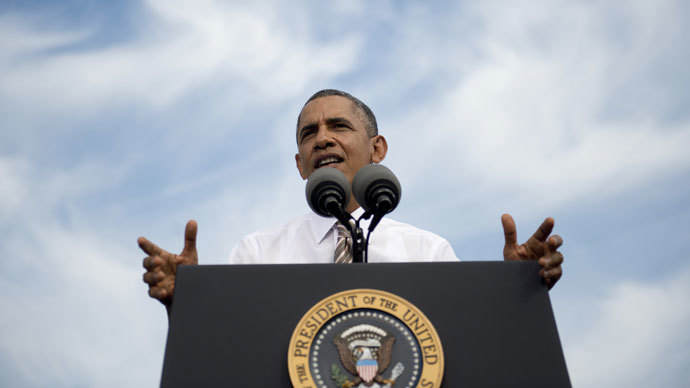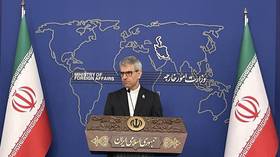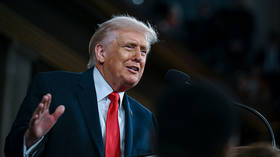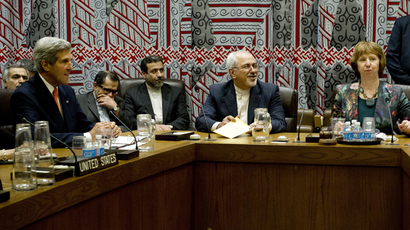Obama administration asks Congress to hold off on new Iran sanctions

A top US State Department official urged members of Congress Thursday to hold onto fresh sanctions against Iran until President Barack Obama’s administration can assess the new conciliatory tone from the Iranian government.
“Let me assure you that we will continue to vigorously enforce
the sanctions that are in place as we explore a negotiated
resolution, and will be especially focused on sanctions evasion
and efforts by the Iranians to relieve the pressure,” Wendy
Sherman, undersecretary of state for political affairs, said
during a Senate Foreign Relations Committee hearing.
The US, United Nations, and European Union have all joined to
press Iran with punitive sanctions for what they say are measures
to curb Tehran’s nuclear weapons program. Iran counters the
claims, saying that it simply aims to produce and use nuclear
energy. The sanctions in place have devastated the
Iranian economy, cutting oil exports in half while causing
crippling inflation and high unemployment.
Yet new President Hassan Rouhani has recently expressed a desire to reconcile with US
officials, marking the possibility of new relations between the
countries.
Sherman asked lawmakers to at least wait until US and Iranian
officials meet in Geneva in mid-October before moving forward
with more sanctions.
“In terms of legislation that is currently being discussed
here on the Hill, we do believe it would be helpful for you all
to at least allow this meeting to happen on the 15th and 16th of
October before moving forward to consider those new
sanctions,” said Sherman, who is leading the US delegation in
talks with Iran.
The UK, Germany, France, Russia, and China will also participate
in the Geneva talks, although direct Iran-US meetings are
expected be the most important of the negotiations.
The US Senate is weighing a new round of fresh sanctions against
Iran following the passage in July of a House bill that would
seek to further cut Iran's oil exports by another one million
barrels a day for the next year to almost zero according to
reported estimates. The legislation also vows military force
against Iran should they defy orders not to pursue a nuclear
weapon.
Rep. Trent Franks (R-Ariz.), who drove the bill in the House,
told the Guardian the legislation is designed to strengthen the
US case during any talks and to "inject into the discussion
the importance of Mr. Obama not making a bad deal – because a bad
deal is worse than no deal at all.”
Franks added that any offerings or promises made by Iranian
officials in the talks would be met with automatic suspicion by
conservative members of the House. The sentiments echo comments
this week by Israeli Prime Minister Benjamin Netanyahu that overtures from Rouhani come from a "wolf in
sheep's clothing.”
Sanctions on Iranian oil exports, shipping, and insurance
businesses cost the Islamic Republic billions in revenue each
month. Existing measures already pressure countries including
China, India, and Japan to reduce importing Iranian oil by
threatening to block their banks from the US financial system.
Sherman reiterated to lawmakers that the administration maintains
a strict line with Iran and will only accept “concrete,
substantive actions” by its government.
“I can assure you, if [Iran does] not come on the 15th and
16th with that substantive plan that is real and verifiable, our
Congress will take action, and we will support them to do
so,” she said.
She asked the Senate to allow the administration “the time to
begin these negotiations and see if, in fact, there is anything
real here with my telling of the Iranians quite directly that if
there isn’t, that everyone is ready to act.”
Sherman also warned during the hearing that the current
government shutdown is curtailing the government’s ability to
oversee the existing sanctions.
“Our ability to do that, to enforce sanctions, to stop
sanction evaders, is being hampered significantly by the
shutdown,” she said.














